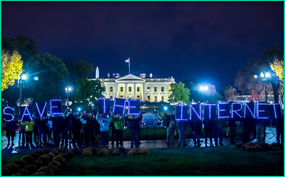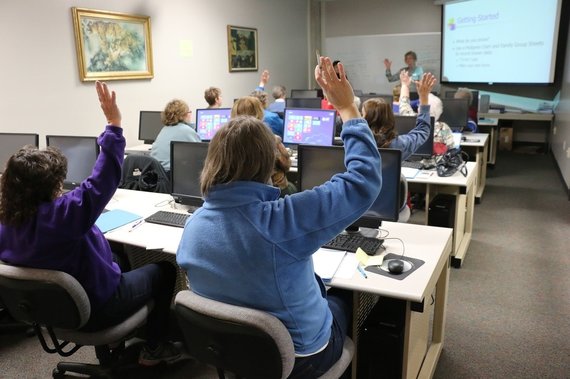
The impending rollbacks raise an important question in regards to our public education system: What could the death of net neutrality mean for students, educators, and administrators?
Internet “Fast Lanes” Eliminate Opportunity
As school districts across the nation have adopted new technologies to enrich education, they have invariably become highly dependent on the internet. As noted by the American Library Association, “net neutrality is essential for library and educational institutions to carry out our missions …The internet has become the primary platform for learning, collaboration, and interaction among students (and educators).”
If ISPs pursued the implementation of internet fast lanes, public education would suffer. Multimedia plays an essential role in K-12 classrooms, and the internet is one of the most common methods of acquiring educational content. Throttling content, whether that be in the form of online tutorials or through collaborative applications, will only negatively impact students and educators.
Annual global IP traffic will reach 1.1 zettabytes this year (or 1 billion terabytes). Even minor changes in internet speeds can have a dramatic effect on how we use and share information. For the sake of efficiency, educators may have to avoid content sources that are being throttled, limiting our access to information. It also has an impact on big data applications. Since administrators are beginning to rely on big data applications to make informed decisions, performance fluctuations may negatively impact their ability to do so.
Security and Privacy
As ISPs become increasingly involved in monitoring and selectively throttling content, they will also doubtlessly be looking for ways to monetize your data. With the recent ruling that such companies are now allowed to sell customer data to the highest bidder, your stored browsing history and metadata is more susceptible to hackers than ever as ISPs must store and maintain related databases for monetization. Providers are even capable of erasing encryption, opening browsing security exploits by inserting ads, and creating additional vulnerabilities through pre-installed spyware.
Avoiding these risks and protecting students from new vulnerabilities will require a herculean effort from network administrators and educators alike, and there is a very small margin for error.
In order to maintain privacy, these changes should impact the way we use the internet, and students need to be aware of it. It is essential that educators teach students how to protect themselves online from unwanted data collection and profiling. As surreal as it would have seemed to teachers a decade or so ago, now is the time to teach students about cybersecurity, proxy servers, and best practices for security on mobile devices. The latter is of particular concern; as Wi-Fi calling is further popularized, the associated security risks must be addressed.
The death of net neutrality could be happening sooner than you might think. The end of net neutrality, as well as recent FCC rulings on customer privacy, could have a severe impact on educators and students. Throttling online content may limit our ability to effectively access classroom material in a timely manner, or even have an impact on big data applications needed to make informed decisions in education. Furthermore, recent changes to privacy have security and privacy implications for schools across the nation. As notable figures like John Oliver and Francis Ford Coppola reignite the fight for net neutrality, the effects that it has on education should be part of the discussion.
About the Author:
Bob Hand is a blogger from Boise, ID. He studied English with an emphasis on Secondary Education at the University of South Carolina, and continues to keep a pulse on current issues in education. His hobbies include reading and collecting vinyl records. You can follow him on Twitter @bob_hand567.
Image 2 courtesy of Wikimedia Commons













